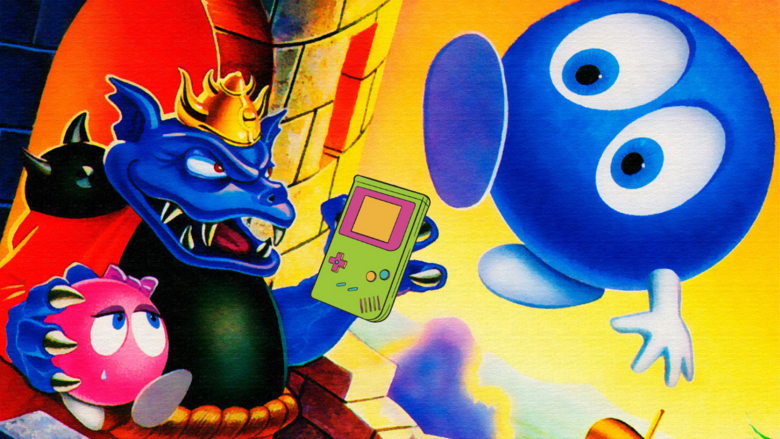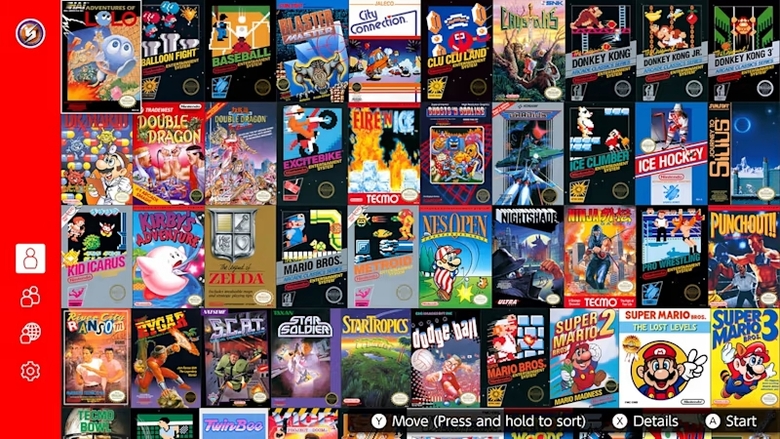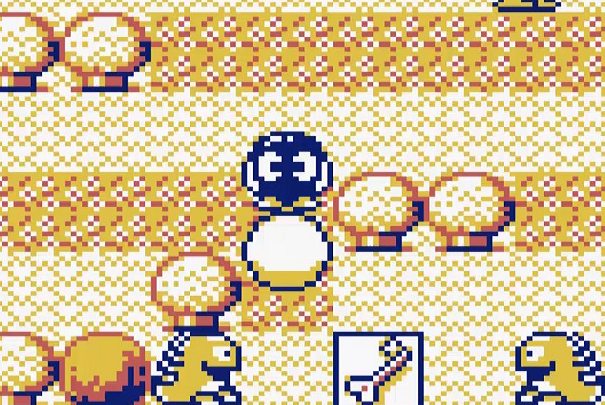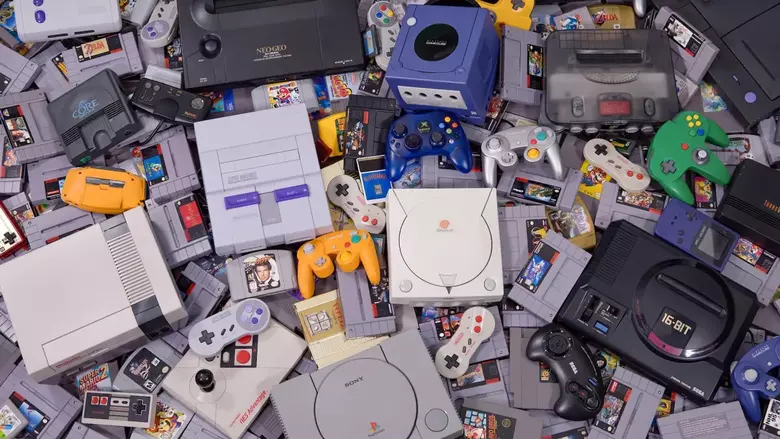The ethical conundrum of retro gaming
Before jumping into this piece, I wanted to say a few things. First, I am not out to pass judgment on anyone’s gaming habits in any way, shape or form. You play however you want and in whatever way you see fit. Second, while this article may make references to piracy, I personally do not participate in the area. Third, I recognize that the topic of emulation and all it encompasses is a nuanced one, and the facts mostly reside in a gray area, rather than things being black and white.
The ease of access to retro games has grown exponentially in the last couple of decades. Things seemed to really kick off with the introduction of the Wii and its Virtual Console, which gave us weekly releases of games from multiple legacy platforms. That idea would continue over to the Wii U and 3DS, and then evolve (or regress, depending on your thoughts) into the Switch Online service nowadays. All of these retro game delivery options show that the idea of using modern platforms to play classic titles is here to stay.
These subscription services and piecemeal options aren’t the only way to enjoy retro gaming on modern platforms, as plenty of publishers are offering software collections as well. Just take a quick look at the Switch library and you’ll see a deluge of releases that bundle tens of retro games into a single compilation. If you want some Capcom classics all in one place or Data East arcade oddities, you’ll have no trouble tracking down sizable assemblies.
Outside of hardware from the big 3, there’s also a host of dedicated devices that give you plenty of ways to play retro games. There are brand-new platforms that support cartridges from decades ago, allowing you to play those titles through sophisticated emulation. There’s also dedicated consoles/portables that come jam-packed with retro games; some of that hardware being legit while others are dubious in nature. Long story short, if you have a hunger for retro games, there are multiple ways to get your fix.
So what’s the problem then? Well, while it’s easy enough to find a litany of retro titles to choose from, it’s a lot tougher to get your hands on the more off-beat titles. For every Super Mario Bros. 3 and Mega Man there’s games like The Guardian Legend and Monster Party. Games like these haven’t made their way to compilations, paid subscriptions services or even online game shops in general. Sadly, chances are they won’t ever make the jump over either. Therein lies the conundrum for some retro game enthusiasts.
A nice selection, but there’s SO much more!
I’ve shared this story a few times over the years through the GoNintendo Podcast, but it’s time for me to come clean in text form. Back in my barely teenage years (roughly 1,000 years ago), I dabbled in emulation. In the early days of the internet, the worldwide web had a very wild west feel. You didn’t think about why things were happening or why they existed in the first place, you just consumed. You pretty much wandered around aimlessly as a virtual vagabond, seeing where the winds took you. For me, on one random day, those gusts swept me into the world of emulation.
When you’re young, you don’t tend to look at the finer points or deeper issues much. You just act impulsively in the name of fun, and that’s what I was doing when I explored emulation. I never gave a second thought to the legal legitimacy of what was being offered, I just knew I wanted to play The Simpsons Arcade Game and Snatcher from the comfort of my desktop computer. For roughly a year, I became absolutely insatiable when it came to retro gaming through emulation. It didn’t really matter what it was, I just wanted to play it. That year was an absolutely wild one, but then came a day where I started to think about what I was doing.
Please know that I am not passing judgment on anyone who actively participates in emulation by sharing this tale. I’m just out to explain who I was, what I did, and where it led me.
One fateful day I decided I didn’t want to be a part of the emulation scene anymore. It simply didn’t feel right to me, so I took my folder of ROMs and emulators and deleted the entire thing. From that day on, I went cold turkey on emulation and kept all my retro gaming to the methods outlined above, along with playing original cartridges on the hardware they were made for. Yes, it is more difficult in some ways and it doesn’t always bring me what I want, but it works well enough for me…mostly.
Every once in a while, there comes a retro game that I’m absolutely itching to play. More often than not, it’s a game I didn’t even know existed, or a title that never got released in North America. When I get that feeling, I set out to hunt down a copy of the game in order to play on actual hardware. Yes, this oftentimes is a bit pricey, which is why I don’t do it all that frequently. Still, it’s important to me that I act on my interests in a way that I feel comfortable with. That brings us to 2024 and my discovery of Adventures of Lolo on the Game Boy.
I’ve been a fan of Adventures of Lolo since it first released on the NES. That game wiggled its way into my heart thanks to its charming designs and excellent puzzling, and it’s remained there ever since. That said, I haven’t played every installment in the series, and only recently did I learn that a unique version of Adventures of Lolo made its way to the Game Boy. I’m not sure how it took me so many decades to find that out, but here we are. Of course, now that I know Adventures of Lolo on Game Boy exists, I desperately want to play it. This set me on my search to find a copy.
This is all your fault, Lolo!
It was this hunt for a legit copy of Adventures of Lolo that sent me down a deep and winding road of despair. First, I found out the title never saw a release in North America, leaving just Japanese and European copies to find. Second, the game also happens to be quite a rare gem in general, meaning copies aren’t all that plentiful. Third (and worse of all), the copies that are out there come with an incredibly high price tag. It’s a triple threat of circumstances that have made it all but impossible for me to play Adventures of Lolo legitimately.
The best deals I’ve seen for Adventures of Lolo hover around the $350 mark, but that’s just for the Japanese version. I’m sure I could fumble my way through the experience, but I’d much rather play in English. If I want to snag an English copy, prices range anywhere from $700 to $1000, so that’s 100% not happening. I don’t have that kind of money to spend on a single retro game, nor do I think I could ever bring myself to do so!
What does this mean for someone like me who wants to stay on the straight-and-narrow with retro games? It means I’ll most likely never play the game, which is incredibly sad to me, but I know it’s not the end of the world. For every game I do play there are hundreds of others that I’ll never get a chance to check out. Yes, it definitely stings to know that something I so dearly want to check out will probably remain far out of reach for the rest of my life, but that’s how the chips have fallen.
…but why does it have to be this way?
I know it’s impossible for developers and publishers to make every single game they release available in perpetuity forever. There are licenses to deal with, platforms to support, shipping logistics to handle, distribution methods to figure out, payment scenarios to tackle and so on. I know some gamers would say it’d be easy for publishers to put ROMs of their back catalog online after a certain amount of years passes, but that’s only coming at things from one side. That solution is easy enough for the gamers who want to play, but publishers are obviously on the other side of the coin. They most likely don’t want to teach their potential customers that if they just wait long enough, they can get whatever game they want for free. Those same publishers also don’t want to draw attention to emulation either, making the situation that much stickier.
I know I could play Adventures of Lolo in literally 5 minutes by just searching for a ROM and emulator, but I’m not comfortable with that. Again, not passing judgment here at all, but that’s not the route I want to take. I also know I’m not the only gamer in this situation, as there’s no doubt plenty who want to play hard-to-find classic titles without having to resort to the darker corners of the internet to get the job done. Yes, we all know that in the grand scheme of things it doesn’t matter that much for a multitude of reasons, but we still want to enjoy our retro games guilt-free.
So many games left to play…
The more I think about the situation, the more I get into my own head. While I’m not down with emulation, I’ve purchased a decent amount of games from retro shops over the years. Those sales aren’t making the developer and publisher any money, so isn’t the end-game the same as if I were emulating? It’s one of those situations where there’s no such thing as a right or wrong answer. I definitely see the argument being made and I can’t fault those who suggest it. If going the “legitimate” route means so much to me, then retro game shops most likely should be factored out of the equation as well. The only pushback I have on that is the fact that those resold cartridges were already bought/sold legitimately decades ago, so the publisher and developer did make their cut at one point. Anything that comes after that is a different story completely…or at least there’s a line of reasoning to argue so.
I don’t know how feasible it is, but I’d love to see developers and publishers open up a program that lets fans support them when they’re trying to track down titles that are no longer published. The companies that create games know that piracy and second-hand sales exist, and while most people will likely just pirate a retro game and call it a day, there are some who’d like to throw money towards the people who created these experiences. Can’t there be an option for me to pay the publisher a blanket fee for access to, lets say, games that haven’t been published in over 20+ years? Then I could have peace of mind with the path I take to that retro game and the publisher/developers make some money instead of nothing. I know there are still all sorts of problems and logistics to work out and I’m most likely missing a few glaring issues, but hey, it’s literally the start of a discussion. Some retro gamers want to dive deeper into libraries than the surface level offerings out there now and do so in an above board way, and publishers/developers are mum’s the word.
I don’t know that this situation will ever be addressed. The money, time and effort the game industry would have to sink into making a solution would likely outweigh the benefits and profits tenfold. On top of that, piracy is here to stay in all of entertainment as people continue to push back on what they see as unfair practices and price hikes. Trust me, I very much get the anger, complaints and vitriol that is out there about gaming, streaming services, movie ticket pricing and so on. I would never wag my finger in disapproval at anyone who takes measures into their own hands. There’s a fight to be had there that could even bring about the change I’m looking for, but that time hasn’t come yet.
Years roll on, outlooks evolve, ideas expand and people change. There may come a day when Adventures of Lolo and thousands of other retro games are made available to all through a solution that makes the vast majority incredibly happy. Unfortunately for me, until that day comes, it looks like Princess Lala is destined to remain a damsel in distress.








